SUMMARY
This is AI generated summarization, which may have errors. For context, always refer to the full article.
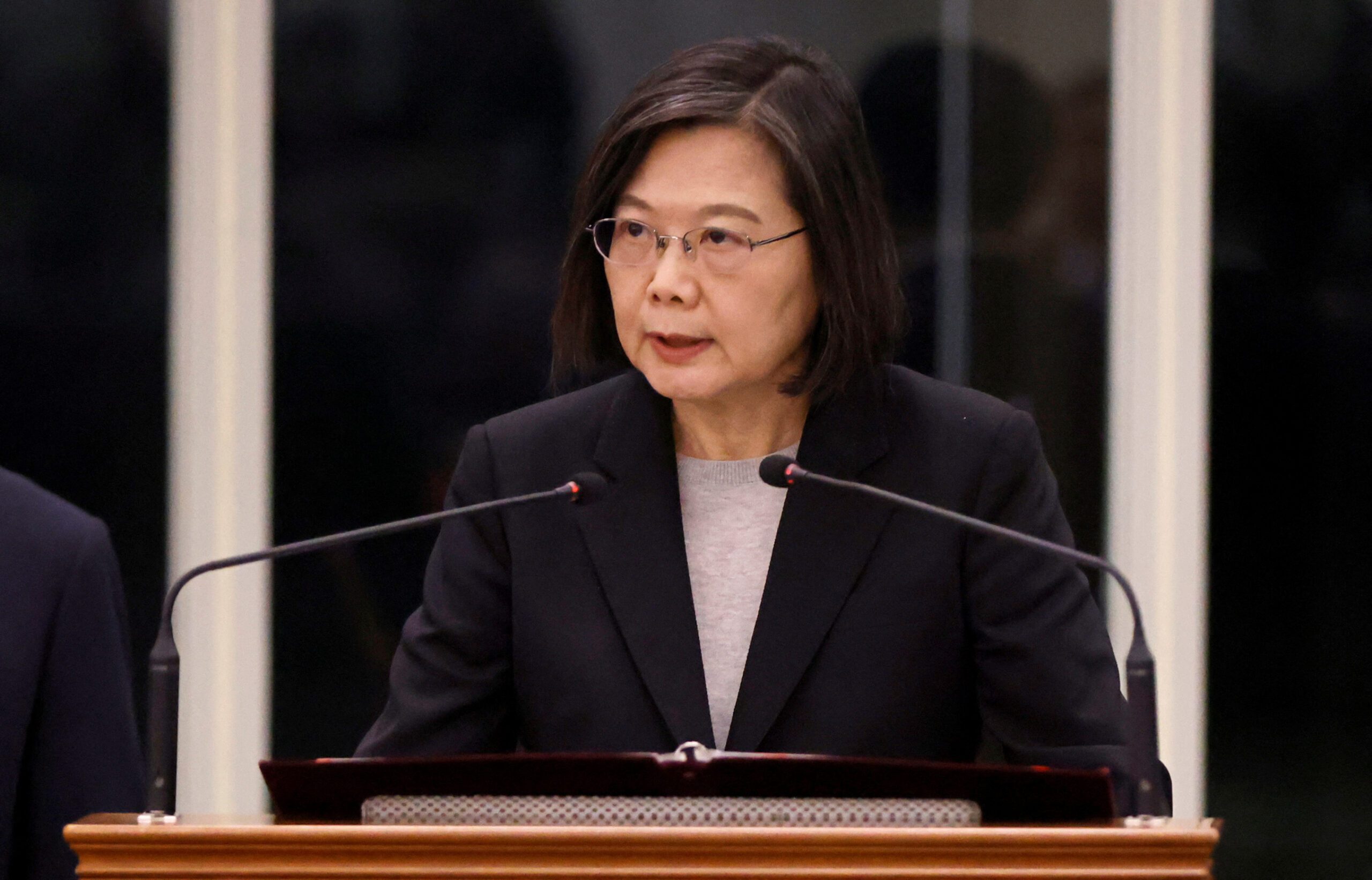
MANILA, Philippines – During her stopover in New York last March 29, Taiwanese President Tsai Ing-wen said that the United States and Taiwan are “closer than ever” as Taiwan attempts to fend off advances of an increasingly aggressive China, which views the self-governing island as a province waiting to be “reunified” with the mainland.
Despite stern warnings from Beijing not to proceed with the meeting, reports from CNN had US House Speaker Kevin McCarthy saying that the US had no intention of further straining relations between Taiwan and China.
As China responded with military drills encircling Taiwan, a defiant Tsai stressed that Taiwan will not be stopped from engaging with the world.
Here are some facts about Tsai Ing-wen, Taiwan’s first female president.
Humble beginnings
According to the Taiwanese government website, Tsai was born in Taipei on August 31, 1956. She is the youngest child in her family, but sources conflict on the number of her siblings (the BBC says she is the youngest of 11, while Britannica says she is the youngest of nine).
According to Taiwan Today, Tsai grew up in her parents’ auto repair shop in Pingtung County, in southern Taiwan.
She studied in Zhongshan Girl’s High School in Taipei, and eventually went to the National Taiwan’s University College of Law. She went on to obtain a Master of Laws from Cornell University, as well as a doctoral degree in law from the London School of Economics and Political Science.
After earning her degrees, she worked as a law and business professor for various universities.
Tsai’s political career began in the late 1980s when she served in Taiwan’s trade negotiation delegation. In the 1990s, she took up posts in various commissions and councils concerned with Taiwan’s national security and relations with mainland China.
Tsai joined the Democratic Progressive Party (DPP) in 2004, and went on to become the first female chairperson of the party in 2008.
A series of milestones
In 2016, Tsai Ing-wen won the presidency, becoming Taiwan’s first female and first unmarried president. She bested the more conservative Eric Chu (from the Kuomintang Party) with 56.1% of the vote. Tsai also became the second person with an ethnic-minority ancestry (Hakka) to become Taiwan’s president.
During her first campaign for president as the DPP’s standard bearer, Tsai ran on a platform that contrasted with the Kuomintang’s perceived coziness to Beijing, highlighting its poor governing record and Taiwan’s lagging economic performance.
In 2020, Tsai obtained more than 57% of the vote in her reelection campaign for president. Her victory at the time was widely seen as a rebuke of China’s hardening resolve to “retake” control of Taiwan.
Leading amid the COVID-19 pandemic
In the early stages of the COVID-19 pandemic, Taiwan’s “track and trace” program and Tsai’s leadership were hailed as models in stemming the spread of the virus. Tsai joined the ranks of New Zealand’s Jacinda Ardern and Germany’s Angela Merkel and other female leaders as exemplars in governing amid a pandemic.
Implementing rigorous and scientific policies meant that Taiwan was able to keep contagion at bay. However, the emergence of the Delta, Omicron, and other more contagious variants forced the Taiwanese government to shift to a “living with the virus approach” and prioritize vaccinations.
Pivot toward the US
Tsai’s two terms as Taiwan’s president have seen overtures to the United States that irritated and angered Beijing. For instance, she refused to acknowledge the “1992 consensus” which indicates that Taiwan is part of “One China.”
In 2016, Tsai made a phone call to then-US president-elect Donald Trump that marked the first time that an American chief executive spoke with his Taiwanese counterpart since 1979. The interaction prompted China to file a formal complaint with the US government. The Trump administration eventually greenlit major arms sales to Taiwan.
As China continued to build up its military capabilities and take a more aggressive posture toward Taiwan and its neighbors, US president Joe Biden indicated that the US is prepared to protect Taiwan should China choose to invade it. However, other Biden administration officials opted to dilute his pronouncement in an effort to maintain the US’ strategic ambiguity on the matter.
In August 2022, former US House speaker Nancy Pelosi visited Taiwan and met with Tsai, spurring Beijing to conduct war games in Taiwan’s vicinity. Pelosi, who has a long history of standing up to China according to CNN, became the first US House speaker to visit the island in 25 years.
Future in politics
As Tsai’s presidential term comes to an end in 2024, she has experienced a number of setbacks.
In November 2022, Tsai stepped down as DPP chairperson after the party suffered losses in a spate of local elections.
“I have let everyone down,” Tsai remarked.
As Tsai’s term is limited, Taiwanese vice president and DPP chairperson William Lai has registered to run in the party’s presidential primary.
Although Tsai’s political future has become somewhat uncertain, her accomplishments while in office (especially in the management of Taiwan-China relations) are set to have a lasting impact. – Enzo De Borja/Rappler.com
Enzo De Borja is a 4th-year Political Science Major at the University of the Philippines-Diliman, volunteering under Rappler’s Research unit.
Add a comment
How does this make you feel?


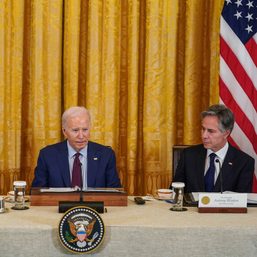
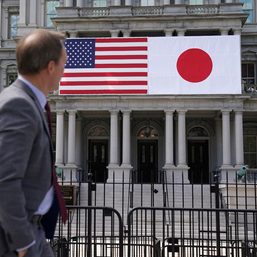
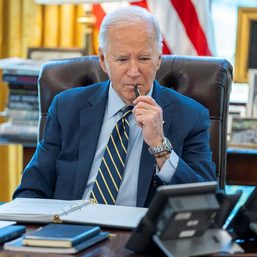




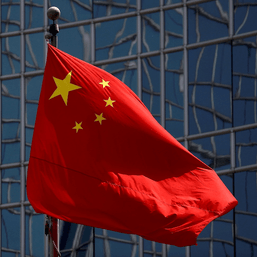


![[Edgewise] God didn’t save Trump from the bullet, immigrants did](https://www.rappler.com/tachyon/2024/07/thought-leaders-trump-immigrants-intervention-07242024.jpg?resize=257%2C257&crop_strategy=attention)




![[Rappler’s Best] Knowing when to leave](https://www.rappler.com/tachyon/2024/07/biden-sara-gfx.jpg?resize=257%2C257&crop_strategy=attention)



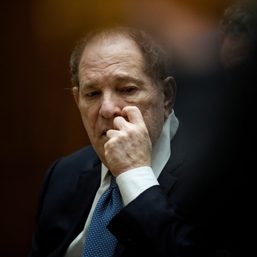

There are no comments yet. Add your comment to start the conversation.